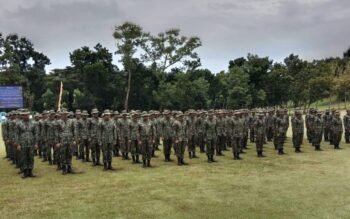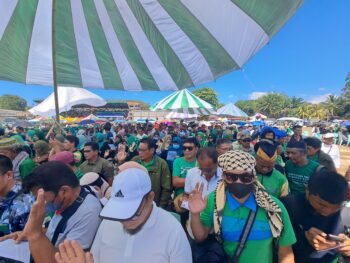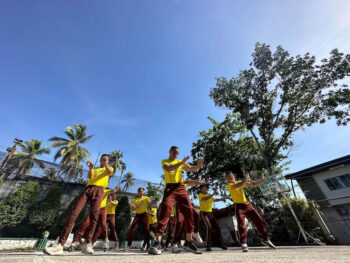
MALAYBALAY CITY (MindaNews / 28 January) — Republic Act No. 8371 or the Indigenous Peoples Rights Act of 1997 grants the country’s Indigenous Peoples the right to self-governance, and, complementary to it, the right to their ancestral domains. The first can only be realized by recognizing the second.
Since Day 1, the law has met various challenges, including questions on its constitutionality that was dismissed simply because the Supreme Court vote resulted in a stalemate.
The brewing conflict in San Francisco, Agusan del Sur between ancestral domain claimants belonging to the Oyay Mansaloay Antod Ogow Bando Ugong (OMAUBAO) Tribal Clan Organization on one hand, and agrarian reform beneficiaries and the San Francisco Water District (SFWD) on the other, is yet another case in point.
As reported by MindaNews correspondent Chris V. Panganiban, in December last year OMAUBAO members entered the 7,680-hectare oil palm plantation in San Francisco for which they have applied for a Certificate of Ancestral Domain Title. Their leader, Bardo Bando, told the mayor in a letter dated January 23 that they “will take over” the area based on the certificate of recognition of their claim issued by the National Commission on Indigenous Peoples on Dec. 14, 2022.
Bando, citing Section 52 of IPRA, further said that the certification “effectively terminates any legal basis for the jurisdiction that may be previously claimed over the ancestral domain” on the part of the Department of Agrarian Reform and other government agencies claiming jurisdiction over the said ancestral domain.
However, Section 56 of the same law provides that property rights existing upon its effectivity shall be recognized. This is where the answer to the question concerning the status of at least 250 agrarian reform beneficiaries, who were awarded around 600 hectares within the contested land and are currently depending on income derived from harvesting oil palm fruits, rests on.
As with any other law, the provisions of IPRA must be interpreted in relation to one another. The claimants cannot summarily tell the agrarian reform beneficiaries to get out and that’s it. The latter acquired rights to the 600 hectares of land in good faith, that is, through tenure instruments issued by the Department of Agrarian Reform, not through deceit, force or coercion. On top of that is the Bill of Rights in the Constitution, which states that no person shall be deprived of life, liberty or PROPERTY without due process of law.
Another issue is the stand of the SFWD to exclude the 1,658 hectares of Mt. Magdiwata Watershed Forest Reserve Area from the claim. The SFWD appears to stand a good chance of winning this battle. Based on the IPRA, forests, parks and reservations may be claimed as part of ancestral domains “except those reserved and intended for common and public welfare and service.”
As the same MindaNews report said, the watershed, which was declared as forest reserve by President Fidel Ramos through Presidential Proclamation 282 dated October 25, 1993 serves as the only source of potable water for the 20 villages of San Francisco. The SFWD and the local government unit can cite the above provision in the IPRA and the general welfare clause in the Constitution to contest assertions by the claimants to include the watershed as part of the ancestral domain.
Don’t get me wrong, I have always been an advocate of IP rights and welfare. I was even involved in the processing of a CADT application in Malaybalay City while working as a writer for a nongovernment organization. But my heart also bleeds for the farmers who would suffer if the ancestral domain claimants were allowed to have their way. I also believe the SFWD is the best choice to act as guardian of San Francisco’s only source of potable water.
(MindaViews is the opinion section of MindaNews. H. Marcos C. Mordeno can be reached at hmcmordeno@gmail.com.)







